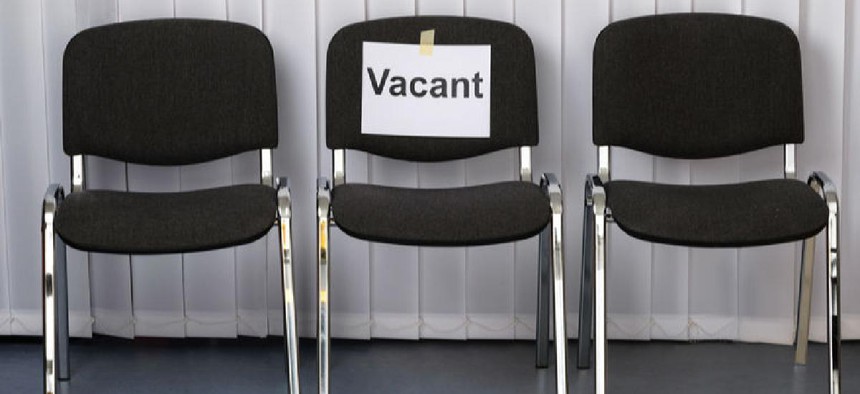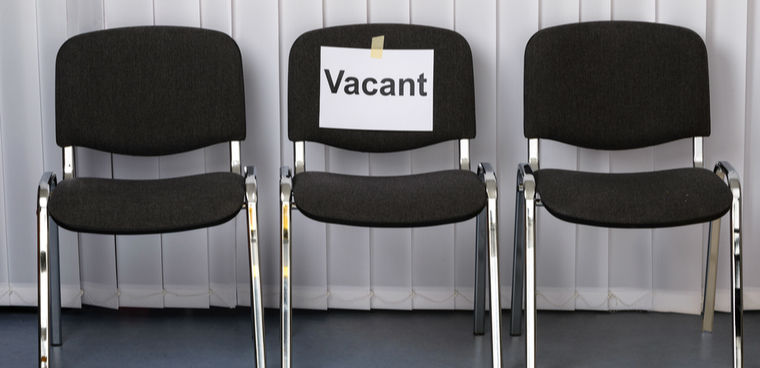MSPB set to enter unprecedented territory with no members

At midnight March 1, the Merit Systems Protection Board will be in unprecedented territory: without a single appointed member.

At midnight March 1, the Merit Systems Protection Board will be in an unprecedented situation: operating without a single appointed member.
On the final day of Mark Robbins' term, he appeared before a House Oversight and Government Reform Subcommittee, which probed the impact of an empty board -- and what happens next. Robbins has been the lone board member at MSPB since January 2017.
"We will enter uncharted territory -- the board will be member-less for the first time in its 40-year history," said subcommittee Chairman Gerry Connolly (D-Va.).
Robbins said that for the roughly 210 employees at MSPB, uncharted territory might not be so different from what currently passes for normal.
"There's almost no chance the board will close down, so absent that, there really is no difference with no members than there was with just one. The only thing different tomorrow morning is that I won't be there to sign off on the cases, which previously had gone to one of the two empty offices. Now they'll go to one of three empty offices," Robbins said.
Currently under its longest stretch without a quorum to vote on cases, MSPB has never been without a single member to review federal workforce appeals to protect civil servants from political interference, cronyism and discrimination.
Two nominees by President Donald Trump -- enough for a quorum -- have been awaiting a Senate confirmation since they were advanced out of committee Feb. 13.
Trump is also yet to nominate a replacement for Andrew Maunz, his third nominee, who withdrew after failing a committee vote late last year. But witnesses broadly agreed that even if Trump doesn't quickly nominate a third board member, the Senate could clear the other two nominees and give the board a quorum whenever it wanted.
"Responsibility for MSPB's incapacity rests primarily with the Senate," said John York, a policy analyst with the Heritage Foundation. "The vacancies on the MSPB ... mean the board cannot fulfill its vital responsibilities."
John Palguta, former director of policy and evaluation of MSPB, said the major impacts over the last two years have been that the board cannot adjudicate appeals cases, the board has not been able to issue studies on workforce issues, nor has it been able make updates to changes in workforce law, such as the Veterans Affairs Accountability Act.
There is precedent for the delegation of authorities to MSPB employees who are not board members, said Valerie Brannon, a legislative attorney with the Congressional Research Service.
The board has "delegated many adjudicative and administrative authorities to various MSPB personnel," she said. "The ability of the MSPB to function with a vacant board will turn on whether it has delegated authority to agency employees and whether those delegations are legally permissible."
Robbins, also the general counsel of the Office of Personnel Management, said following the hearing that, in the interim, the board will still be able to carry out other aspects of its mandate.
"Even lacking a quorum for the last two years, the board has basically fully functioned" outside of appeals decisions and issuing reports," he said. "Everything else continues as normal."
In the two years without a quorum, the backlog of appeals has grown by about 1,700 cases and counting.
Connolly and full committee chair Rep. Elijah Cummings (D-Md.) offered legislation recently that would extend Robbins' term another year, but Robbins said, with his term so close to expiring, "that ship has sailed."
And in the event that weeks or months pass without the Senate advancing Trump's nominees, Robbins said, "I think for [the staff], tomorrow will be business as usual."
NEXT STORY: How legacy IT complicates hiring at DHS


